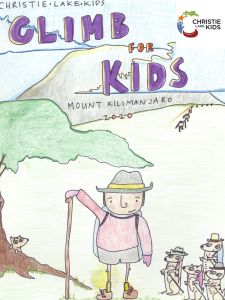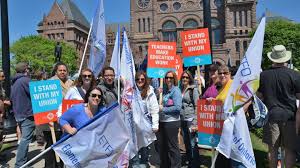If you are not an educator or healthcare worker, you might things are OK here in Ontario. We now have buck a beer and tailgating is not far behind. We have a government in Ontario that is catering to the base interests of many people in the province. The government for the ‘people’ is reducing class sizes, getting rid of thousands of teachers, diverting money away from repairing schools and delving dangerously into the math curriculum. They say the system is broken and they are here to fix it.
The situation will remain grim and we are probably heading towards a political showdown between the teacher federations and this government. This will not go well and a chill will descend over education in Ontario that will not be lifted for years to come.
It is very sad and frustrating that every 15 years or so we need to go into one of these destructive cycles. There still exists in this society a belief that educators make too much and that we lavish our children with an education system that is too rich for the collective blood. The system needs to be culled every decade or so to make sure money is being spent in a ‘responsible’ way.
If this were not the case, we would not have a government who says with impunity that student protests were controlled by union bosses and that teachers are engaging in political protest using their bulletin boards. The public, by and large, is accepting this.
Over the weekend, thousands of teachers travelled to Toronto to protest against this assault on our public education system. This is a good thing, but it is not nearly enough. In a world of the 24-hour news cycle, more must be done.
So, I have a proposal. While there are a number of great bloggers and podcasters who have made their voices heard, more of the province’s education opinion-makers need to weigh in. It is very possible to look at a day of podcasts and blog posts and see people writing about the same thing. This is OK up to a point, but I would argue that all writers and broadcasters need to dedicate at least 15% of their time to political protest.
Will this turn the tide? No, but that is not a strong enough argument for not doing this. When an excellent education is under attack by politicians who simply want to save tax dollars everyone has a role to play on a regular basis to speak out against this injustice.
Let’s make no mistake here. This is an injustice. Yes, this involves the loss of teacher jobs, but much more importantly, one of the best education systems in the world is being hijacked by politicians who are catering to society’s base economic interest.
So writers and broadcasters, let’s not beat around the bush. Come out and call this an injustice. Write more about how these changes have nothing to do with improving the education of our children and everything to do with leaving a few more dollars in the pockets of voters. Call this what it truly is – an assault against the learning environment of children and young people in this province.
Please stop worrying about how this will look or what your followers might think. If you are able to put together a post on any other educational topic, this one really should top your list.


















